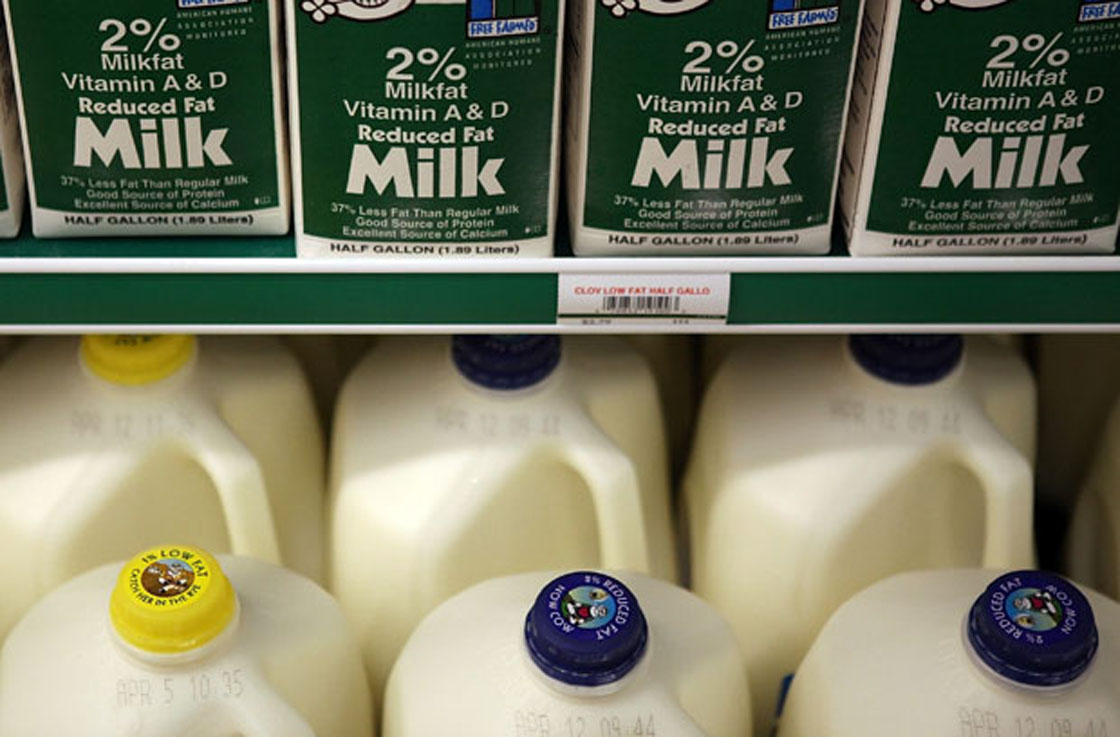TORONTO – While growing up, kids are always taught to drink their daily glass of milk to keep their growing bones healthy and teeth strong.

Now, a Harvard University professor is casting doubt on this tradition, offering his two cents on what was once the holy grail of childhood nutrition. He even says some varieties – reduced fat – may be adding to the obesity pandemic. It’s a bold statement that has stirred up controversy among doctors and nutritionists online.
Following pediatrician Dr. David Ludwig’s review on milk in the Journal of the American Medical Association came handfuls of media reports – headlines such as “It doesn’t do a body good” and “Got milk? This study may make you rethink that choice” made their way around the world.
Global News looks at the review, the counter-arguments and the verdict from Canadian experts.
The review:
Ludwig, a Harvard University pediatrics professor, says that skim milk may be hurting our diets. The beverage is traditionally thought to offer plenty of benefits – vitamin D, calcium and protein, for starters – without as much fat and calories as its full-fat counterparts.
But Ludwig suggests the non-fat variety is like other low-calorie options, like fat-free snacks or artificially sweetened drinks – research has pointed to a link in eating more when dining on these “healthier” options.
- What is a halal mortgage? How interest-free home financing works in Canada
- Ontario doctors offer solutions to help address shortage of family physicians
- Capital gains changes are ‘really fair,’ Freeland says, as doctors cry foul
- Budget 2024 failed to spark ‘political reboot’ for Liberals, polling suggests
Zero, one and two per cent fat milk options don’t offer satiety the same way full-fat milk does. Ludwig suggests that if kids drink non-fat milk, they might reach for extra cookies to compensate while those who sip on full-fat milk may find their drinks more satisfying.
Low-fat milk is also high in sugar. One cup of two per cent milk contains 12.3 grams of sugar, which is more than what’s in a Reese’s Peanut Butter Cup, Forbes notes. Kids are only supposed to have 12 grams of sugar a day.
Ludwig even questions the value of milk in our diets: in his review, he notes that some countries that don’t drink milk have lower bone fracture rates.
Harvard’s School of Public Health’s nutrition information on milk says: “Calcium is important. But milk isn’t the only, or even best, source.”
This is adding to a long-established movement against dairy – for some time, vegans and nutritionists, for example, have reminded diners that humans are the only animals who rely on milk into adulthood and we’re the only animals who drink another species’ mother’s milk.
Read Ludwig’s opinion piece here.
The counter-arguments:
The National Dairy Council in the U.S., for its part, says that milk is crucial in ensuring kids get their recommended intake of critical nutrients.
Sound bite: “Milk (white or flavoured) is an affordable, great-tasting way to enhance the nutrient quality of your diet,” Greg Miller, executive vice president of the organization said.
“Research shows that children who drink flavoured milk also drink more milk overall, have better quality diets, do not have higher intakes of added sugar or fat, and are just as likely to be at a healthy weight compared to kids who do not consume flavored milk.”
Canadian experts weigh in:
Canadian doctors had their own questions about the review but agreed that for some of us, there are better ways of getting our calcium and vitamins.
But for kids, milk may be a parent’s best bet to making sure their growing bodies get the calories and nutrition they need.
“We can easily survive without milk in our diet and we can provide children with a diet that excludes milk. The key point is that it is hard to do that,” Dr. Rena Mendelson, a nutrition professor at Ryerson University with more than 40 years of experience in the field, told Global News.
“You can get calcium from things like broccoli or kale but you’d have to eat a lot of it and it’s not food children easily accept,” she said.
Dr. Ali Zenter, a Vancouver-based doctor and obesity expert, suggests that drinking calories isn’t ideal either.
A glass of fat-free skim milk has 91 calories and a glass of full fat milk has 157 calories and 8.6 grams of fat.
“The fascinating thing about drinking your calories is that there are studies that show that drinking calories doesn’t cause satiety as well as eating them,” Zentner said.
Mendelson said she questions what else is on a diner’s plate. Maybe they made the switch to skim milk after putting on weight. Zentner said that Ludwig’s cookie analogy should remove the cookie in general if parents want their kids to eat healthier.
Both doctors say that there isn’t a single verdict that applies to all – there are other factors at play: age and physical activity or number of meals eaten each day, to name a few.
“When you are talking about a four-year-old, it’s a much different situation than a 40-year-old,” Zentner said.
carmen.chai@globalnews.ca
Follow @Carmen_Chai




Comments